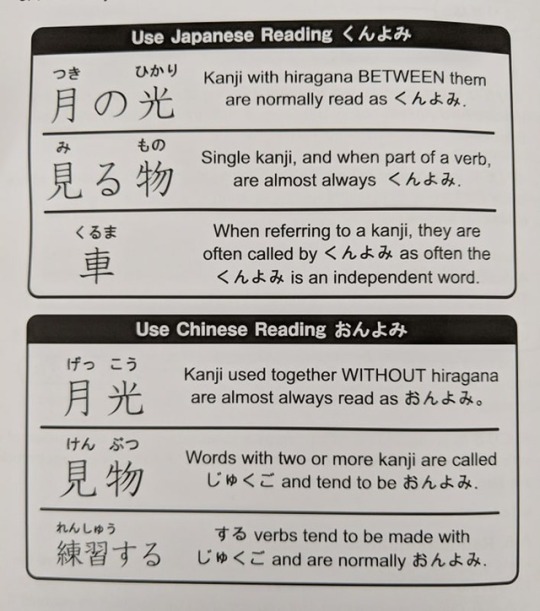Text
Free Printable Language Writing Worksheets for 34 Languages

If you’re looking to practice a bit and remember your target language better… here are tons of free worksheets/workbooks for 34 languages (Japanese, Spanish, Korean, French, German, etc, etc.)
upfront & obvious disclaimer: account required
It’s the same type of “fill in the blank” workbook across all of their languages but the magic in actually rewriting things over and over is that the words end up sticking. Plus, there are English sections where you’ll have to force yourself to remember and write the word/phrase in the target language - which is even better for your memory (called active recall - forcing yourself to remember). I’m personally a big fan of this approach and I’d do similar to pass vocab quizzes in my HS & uni language classes.
If you’re interested, give these a go.
Afrikaans— https://www.afrikaanspod101.com/Afrikaans-worksheets
Arabic— https://www.arabicpod101.com/Arabic-worksheets
Bulgarian— https://www.bulgarianpod101.com/Bulgarian-worksheets
Cantonese— https://www.cantoneseclass101.com/Cantonese-worksheets
Chinese— https://www.chineseclass101.com/Chinese-worksheets
Czech— https://www.czechclass101.com/Czech-worksheets
Danish— https://www.danishclass101.com/Danish-worksheets
Dutch— https://www.dutchpod101.com/Dutch-worksheets
English— https://www.englishclass101.com/English-worksheets
Filipino— https://www.filipinopod101.com/Filipino-worksheets
Finnish— https://www.finnishpod101.com/Finnish-worksheets
French— https://www.frenchpod101.com/French-worksheets
German—https://www.germanpod101.com/German-worksheets
Greek— https://www.greekpod101.com/Greek-worksheets
Hebrew— https://www.hebrewpod101.com/Hebrew-worksheets
Hindi— https://www.hindipod101.com/Hindi-worksheets
Hungarian— https://www.hungarianpod101.com/Hungarian-worksheets
Indonesian— https://www.indonesianpod101.com/Indonesian-worksheets
Italian— https://www.italianpod101.com/Italian-worksheets
Japanese— https://www.japanesepod101.com/Japanese-worksheets
Korean— https://www.koreanclass101.com/Korean-worksheets
Norwegian— https://www.norwegianclass101.com/Norwegian-worksheets
Persian— https://www.persianpod101.com/Persian-worksheets
Polish— https://www.polishpod101.com/Polish-worksheets
Portuguese— https://www.portuguesepod101.com/Portuguese-worksheets
Romanian— https://www.romanianpod101.com/Romanian-worksheets
Russian— https://www.russianpod101.com/Russian-worksheets
Spanish— https://www.spanishpod101.com/Spanish-worksheets
Swahili— https://www.swahilipod101.com/Swahili-worksheets
Swedish— https://www.swedishpod101.com/Swedish-worksheets
Thai— https://www.thaipod101.com/Thai-worksheets
Turkish— https://www.turkishclass101.com/Turkish-worksheets
Urdu— https://www.urdupod101.com/Urdu-worksheets
Vietnamese— https://www.vietnamesepod101.com/Vietnamese-worksheets
7K notes
·
View notes
Text
https://linguistmag.com/learn-japanese-study-guide/
I’ve been on and off learning Japanese for years. Here is what I’ve tried and what I’m using now.
101 notes
·
View notes
Text
🌱Slow living/wholesome things to do as a language-learner 🌱
Read in your TL, or if that’s too hard, read a book set in the country or a non-fiction book about the culture
Try cooking a meal from your TL’s culture
Play a sport that’s popular in your TL’s culture
Learn the traditional dance of your TL’s culture (if the culture is happy to share their traditional dance with outsiders)
Listen to traditional/folk music from your TL. Bonus if you can find a vinyl record of it or go to a live concert!
Journal in your TL
Look at art from your TL’s culture (maybe you could even go to an art exhibition for artists from your TL country!)
Sing in your TL
If you play an instrument, learn to play a song from your TL’s culture
Learn an instrument unique or common to your TL’s culture
Do a yoga video in your TL
Try out a traditional hairstyle from your TL’s culture
273 notes
·
View notes
Text
Evergreen is actually the name of the shipping company. You’re thinking of Evergreen’s monster.
4K notes
·
View notes
Text
“You did not understand why I wrote beautiful letters to you, any more than you understood why I gave you beautiful presents.”
— Oscar Wilde to Lord Alfred Douglas, in a letter later published under the title ‘De Profundis’ - January-March, 1897.
74 notes
·
View notes
Text
multilinguals whose voice is deeper when speaking your native language(s) but then goes high pitched the second you switch to L2 or L3… you’re very valid and also sexy
13K notes
·
View notes
Text

These are
very casual ways of saying " what? / what did you say?"
⭕️なんて言った?
(nante itta?)
⭕️なんて?
(nante?)
⭕️何(なに)?
(nani?)
⭕️えー?⤴️
e-?
When you want to be polite,
you can say,
👇
すみません、もう一度言ってもらえますか?
(すみません、もういちどいってもらえますか?)
(sumimasen, mouichido ittemoraemasu ka?)
which means " Sorry, but can you say it again?"
I hope it's useful!😊
101 notes
·
View notes
Text
How to learn a language when you don’t know where to start:
General Plan:
Weeks 1 and 2:
Purpose:
Learn the fundamentals sentence construction
Learn how to spell and count
Start building a phrase stockpile with basic greetings
The Alphabet
Numbers 1 - 100
Subject Pronouns
Common Greetings
Conjugate the Two Most Important Verbs: to be and to have
Basic Definite and Indefinite Articles
Weeks 3 and 4:
Purpose:
Learn essential vocabulary for the day-to-day
Start conjugating regular verbs
Days of the Week and Months of the Year
How to tell the time
How to talk about the weather
Family Vocabulary
Present Tense Conjugations Verbs
Weeks 5 and 6:
Purpose:
Warm up with the last of the day-to-day vocabulary
Add more complex types of sentences to your grammar
Colours
House vocabulary
How to ask questions
Present Tense Conjugations Verbs
Forming negatives
Weeks 7 and 8:
Purpose:
Learn how to navigate basic situations in a region of your target language country
Finish memorising regular conjugation rules
Food Vocabulary and Ordering at Restaurants
Money and Shopping Phrases
Present Tense Conjugations Verbs
Weeks 9 and 10:
Purpose:
Start constructing descriptive and more complex sentences
Adjectives
Reflective verbs
Places vocabulary
Weeks 11 and 12:
Purpose:
Add more complex descriptions to your sentences with adverbs
Wrap up vocabulary essentials
Adverbs
Parts of the body and medical vocabulary
Tips for Learning a Foreign Language:
Learning Vocabulary:
What vocabulary should I be learning?
There are hundreds of thousands of words in every language, and the large majority of them won’t be immediately relevant to you when you’re starting out.Typically, the most frequent 3000 words make up 90% of the language that a native speaker uses on any given day. Instead try to learn the most useful words in a language, and then expand outwards from there according to your needs and interests.
Choose the words you want/need to learn.
Relate them to what you already know.
Review them until they’ve reached your long-term memory.
Record them so learning is never lost.
Use them in meaningful human conversation and communication.
How should I record the vocabulary?
Learners need to see and/or hear a new word of phrase 6 to 17 times before they really know a piece of vocabulary.
Keep a careful record of new vocabulary.
Record the vocabulary in a way that is helpful to you and will ensure that you will practice the vocabulary, e.g. flashcards.
Vocabulary should be organised so that words are easier to find, e.g. alphabetically or according to topic.
Ideally when noting vocabulary you should write down not only the meaning, but the grammatical class, and example in a sentence, and where needed information about structure.
How should I practice using the vocabulary?
Look, Say, Cover, Write and Check - Use this method for learning and remembering vocabulary. This method is really good for learning spellings.
Make flashcards. Write the vocabulary on the front with the definition and examples on the back.
Draw mind maps or make visual representations of the new vocabulary groups.
Stick labels or post it notes on corresponding objects, e.g when learning kitchen vocabulary you could label items in your house.
How often should I be practising vocabulary?
A valuable technique is ‘the principle of expanding rehearsal’. This means reviewing vocabulary shortly after first learning them then at increasingly longer intervals.
Ideally, words should be reviewed:
5-10 minutes later
24 hours later
One week later
1-2 months later
6 months later
Knowing a vocabulary item well enough to use it productively means knowing:
Its written and spoken forms (spelling and pronunciation).
Its grammatical category and other grammatical information
Related words and word families, e.g. adjective, adverb, verb, noun.
Common collocations (Words that often come before or after it).
Receptive Skills: Listening and Reading
Reading is probably one of the most effective ways of building vocabulary knowledge.
Listening is also important because it occupies a big chunk of the time we spend communicating.
Tips for reading in a foreign language:
Start basic and small. Children’s books are great practice for beginners. Don’t try to dive into a novel or newspaper too early, since it can be discouraging and time consuming if you have to look up every other word.
Read things you’ve already read in your native language. The fact that you at least know the gist of the story will help you to pick up context clues, learn new vocabulary and grammatical constructions.
Read books with their accompanying audio books. Reading a book while listening to the accompanying audio will improve your “ear training”. It will also help you to learn the pronunciation of words.
Tips for listening in a foreign language:
Watch films in your target language.
Read a book while also listening along to the audio book version.
Listen to the radio in your target language.
Watch videos online in your target language.
Activities to do to show that you’ve understood what you’ve been listening to:
Try drawing a picture of what was said.
Ask yourself some questions about it and try to answer them.
Provide a summary of what was said.
Suggest what might come next in the “story.”
Translate what was said into another language.
“Talk back” to the speaker to engage in imaginary conversation.
Productive Skills: Speaking and Writing
Tips for speaking in a foreign language:
If you can, try to speak the language every day either out loud to yourself or chat to another native speaker whether it is a colleague, a friend, a tutor or a language exchange partner.
Write a list of topics and think about what you could say about each one. First you could write out your thoughts and then read them out loud. Look up the words you don’t know. You could also come up with questions at the end to ask someone else.
A really good way to improve your own speaking is to listen to how native speakers talk and imitate their accent, their rhythm of speech and tone of voice. Watch how their lips move and pay attention to the stressed sounds. You could watch interviews on YouTube or online news websites and pause every so often to copy what you have just heard. You could even sing along to songs sung in the target language.
Walk around the house and describe what you say. Say what you like or dislike about the room or the furniture or the decor. Talk about what you want to change.This gets you to practise every day vocabulary.
Tips for writing in a foreign language:
Practice writing in your target language. Keep it simple to start with. Beginner vocabulary and grammar concepts are generally very descriptive and concrete.
Practice writing by hand. Here are some things you can write out by hand:
Diary entries
Shopping lists
Reminders
What could I write about?
Write about your day, an interesting event, how you’re feeling, or what you’re thinking.
Make up a conversation between two people.
Write a letter to a friend, yourself, or a celebrity. You don’t need to send it; just writing it will be helpful.
Translate a text you’ve written in your native language into your foreign language.
Write a review or a book you’ve recently read or a film you’ve recently watched.
Write Facebook statuses, Tweets or Tumblr posts (whether you post them or not will be up to you).
Write a short story or poem.
Writing is one of the hardest things to do well as a non-native speaker of a language, because there’s no room to hide.
There are lots of ways to improve your writing ability, but they can be essentially boiled down to three key components:
Read a lot
Write a lot
Get your writing corrected
28K notes
·
View notes
Photo

Particeps conventus in Zoom constituti, audibilis tantum
Particeps conventus in Zoom constituti, visibilis quoque
Zoom meeting, audio only
Zoom meeting with video
(Fons Imaginis.)
13 notes
·
View notes
Text
Legolas pretty quickly gets in the habit of venting about his travelling companions in Elvish, so long as Gandalf & Aragorn aren’t in earshot they’ll never know right?
Then about a week into their journey like
Legolas: *in Elvish, for approximately the 20th time* ugh fucking hobbits, so annoying
Frodo: *also in Elvish, deadpan* yeah we’re the worst
Legolas:

262K notes
·
View notes
Photo


shun.kei on ig
友 (friend)
4K notes
·
View notes
Photo

For all those times you ask yourself, “Onyomi or Kunyomi??”
8K notes
·
View notes
Text
The idea of english as a mother tongue is so strange to me, in my head english is how ppl communicate when there's no way in common to communicate, so english as a mother tongue sounds a bit like idk email as a mother tongue ykwim? Like english to me feels like the stuff that's used to fill the empty spaces between languages
#ive never actually thought abt it#but yeah#so weird that English is an actual language that actual people speak in their actual lives bc that’s their actual native language
83K notes
·
View notes











